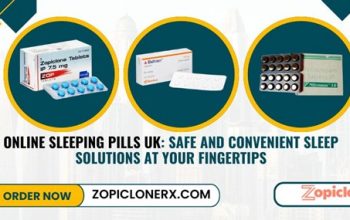Drug addiction has lasting and far-reaching effects on individuals and their families. Recovery often begins with accessing treatment that is designed not just to address the symptoms of addiction, but also to promote healing and create a foundation for long-term success. This blog takes a closer look at the statistical importance of effective drug rehab programs and the unique benefits they provide to support lasting recovery.
The Essential Role of Drug Rehab in Recovery
Addiction statistics reveal a compelling story. According to national behavioral health data, people who participate in structured treatment programs are significantly more likely to achieve and maintain sobriety. Program participation has even been associated with a reduction in relapse rates by up to 50% compared to those who attempt to quit on their own. These numbers underscore the value of drug rehab programs that go beyond detoxification, emphasizing strategies for sustaining behavioral changes and supporting holistic healing.
Customized Treatment Plans Increase Success Rates
Every individual struggling with addiction brings a different set of experiences, challenges, and goals to the table. Leading programs use comprehensive assessments to design highly personalized treatment plans. Research shows that tailored care results in higher completion rates. Individuals are more likely to remain engaged, more receptive to therapy, and better equipped to maintain new habits when treatment aligns with their unique needs.
Personalized plans can also lead to measurable improvements in mental health and life satisfaction. Statistics show that those receiving customized therapy report fewer symptoms of depression and anxiety and enjoy improved family relationships.
Evidence-Based Therapies Foster Transformation
Evidence-based therapies remain the gold standard in contemporary drug rehab programs. Behavioral therapies such as Cognitive Behavioral Therapy (CBT) and Motivational Interviewing have consistently demonstrated benefits in clinical studies. For example, individuals who participate in these therapeutic approaches report fewer cravings, stronger coping mechanisms, and higher abstinence rates over one year post-treatment.
Group therapy is another supportive component commonly found in successful rehab programs. Peer support coupled with professional facilitation increases commitment to long-term wellness, as data reveals that those who attend group sessions are 30% more likely to remain drug-free after treatment.
Supporting Physical and Mental Well-Being
Healing from drug addiction involves more than breaking the cycle of substance use. Comprehensive drug rehab programs incorporate services like nutrition counseling, physical fitness, and mindfulness practices. According to recent health surveys, participants who engage in physical wellness activities while in rehab experience faster recovery times, better sleep patterns, and significant reductions in stress levels.
Rehab programs that also address co-occurring mental health disorders have a strong track record in promoting lasting recovery. By treating issues such as depression or post-traumatic stress disorder alongside addiction, the risk of relapse drops significantly. Studies suggest a 60% improvement in long-term sobriety for individuals receiving dual diagnosis support.
Ongoing Support and Aftercare Build Resilience
Relapse prevention is one of the most critical aspects of long-term recovery from addiction. Drug rehab programs that offer ongoing aftercare services—including counseling, support groups, and educational workshops—see significantly lower readmission rates. Those who participate in aftercare are up to three times more likely to remain substance-free when tracked over a two-year period.
Aftercare programs provide tools for managing cravings, navigating life stressors, and maintaining motivation. They may also foster a sense of community, which has been shown to reduce feelings of isolation or shame commonly experienced during recovery.




